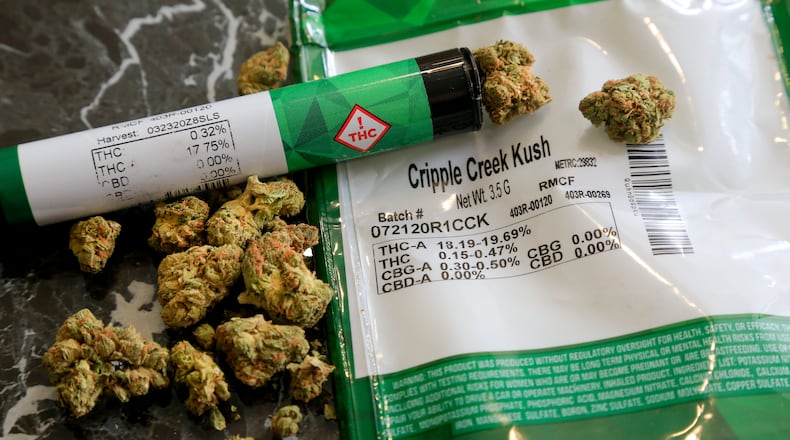Kettering’s move follows action by Oakwood the previous week to permanently ban adult-use recreational marijuana businesses in that city.
Oakwood had previously passed a moratorium on marijuana retail operators.
Last November, Ohioans approved Issue 2, a statewide ballot initiative legalizing recreational marijuana. Within weeks of Issue 2′s passage, temporary freezes on marijuana businesses were also passed in Beavercreek, Carlisle, Centerville, Fairfield, Franklin, Hamilton, Miamisburg, Monroe, Springboro, Vandalia, Waynesville, Xenia and several other cities throughout Ohio.
“We were ... hopeful that the state legislature might act to modify or amend some provisions of this voter-initiated law, possibly in a way that could be beneficial to our community,” Oakwood Vice Mayor Steve Byington said. “To date, this has not happened, and we are not optimistic that it will.
“The legalization of marijuana is a major change in the law, particularly when it comes to the potential impact of marijuana business operations on a small residential community,” Byington added.
Oakwood’s council “believes that marijuana business operations are not compatible with the dense residential character” of the city, he said. Oakwood already prohibits medical marijuana dispensaries, Law Director Robert Jacques added.
Kettering’s initial nine-month moratorium on recreational marijuana businesses was approved last November.
The vote this week to increase the temporary ban was made, in part, because “the state’s administrative rules are not fully completed,” according to the legislation.
“There are bills pending in the Ohio General Assembly that if enacted could change the commercial cannabis statutes,” Kettering City Manager Matt Greeson said.
“An extension of the moratorium is needed to give the city time to assess the state statutes and administrative rules once they are finalized,” he added.
Under Ohio law, state residents over the age of 21 can have up to 2.5 ounces of marijuana in plant form or up to 15 grams in extract form and are allowed to grow up to six marijuana plants per adult (capped at 12 plants per household).
Issue 2 legalized possession and home growing of marijuana while creating the Division of Cannabis Control, which will eventually allow the regulated sale and purchase of recreational marijuana products.
Earlier this month, the state Division of Cannabis Control began accepting applications for new dual licenses that will allow existing medical marijuana dispensaries to also sell nonmedical cannabis.
Byington said Oakwood officials expect the state will start issuing business licenses this summer.
About the Author

